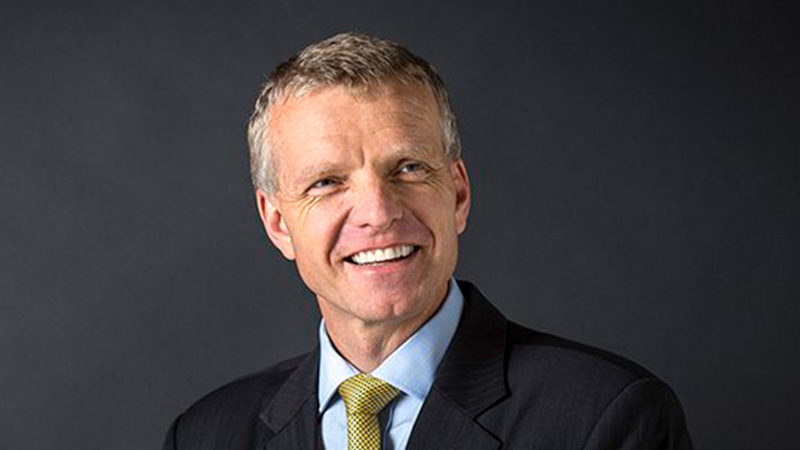Accountants ‘well-qualified’ to satisfy advice demand
The rules need to recognise that clients often have simple questions which accountants are best placed to answer.
Accountants already have the qualifications to give clients straightforward advice said the superannuation leader at CA ANZ, Tony Negline, and with the right rule changes they could soak up some of the unmet demand.
Speaking on the latest Accountants Daily podcast Mr Negline said the Quality of Advice Review, which is due to report late this year, needed to address the fact that price was putting advice out of reach for general consumers.
He said simple questions from familiar clients currently fell into the realm of advice but accountants were hamstrung and forbidden to go beyond factual statements.
“The general view is that the financial advice space is not well regulated and it does need to be looked at because the cost of providing advice is too high,” he said.
“Not only that, but also we're seeing a large number of financial advisers leave the space for a variety of reasons. So the ability for the general consumer to get advice is getting harder and harder.”
“Most accountants in public practice are registered tax agents. As registered tax agents and qualified accountants, they can talk to you about factual matters, about compliance with the tax laws, and laws that the ATO administers, such as the superannuation laws in relation to self-managed funds.”
But he said as soon as the questions went beyond matters of fact, such as whether an SMSF contribution was a good idea, they fell under the category of advice and the huge burden of compliance that required.
“So they can say to you, factually, you can make a contribution this year of $27,500,” he said.
“Now, one of your natural follow-on questions would likely be, ‘Well, is that a good thing for me to do?’ Which, under law, is actually a question saying, ‘Can you please give me financial advice?’
“Now, if you're not licenced to provide that then you actually technically can't say you should, or you shouldn't.
“All you can do is to say, well, there are obviously good things about it – you can get a tax deduction, that's all factual information. But there are also limitations on what you can do about getting access to it – again, that's factual information about how the laws work.
“But as for saying whether or not you should do it, well, that's off the page because most accounts are not licensed to give that information.”
However, the requirements to get that licence failed to acknowledge the qualifications and experience accountants already had, as well as the longstanding relationship most had with clients.
“If you are going to provide that advice you've got to go through the whole know-your-client process, you’ve got to study the client, you’ve got to work out what they want to achieve,” he said.
All the options had to examined and documented.
“Then you've got to give the client an advice document. So there's this huge great expense process to formalise it.”
“The factual circumstance, however, is that accountants nearly always know their clients extremely well, especially their small business clients. They may have known them for a long time – many years, if not decades.
“So they know the clients and they know their circumstances, both financial, personal and business circumstances.
“So they should be able to say to their clients, ‘Well, look, you making a concessional contribution is actually a good thing for you for a variety of reasons. And here they all are. But don't forget with every good thing, there's also some bad things and by the way, don't forget the bad things.’
“And then a client's free to make a decision based on that relatively simple conversation.”
Accounting standards already covered conflict-of-interest issues.
“Under the accounting standards, an accountant always has to act in the best interest of their client and they have to remove all conflicts of interest, or as much as they possibly can.
“So where they know the client well and they're providing tax services, we would like the ability for an accountant to have a relatively simple conversation with the client around, let’s say, when they're restructuring their affairs or they want to start a pension.”
“Accountants are well placed to be able to provide that. There's a very much a big unmet demand for advice and accountants are well placed to soak up some of that unmet demand for some of their clients.”
And he said accountants had already qualified to a high financial level.
“Since the early 70s, you've needed a bachelor's degree in order to then study to become a chartered accountant. So chartered accountants for a long time have had good financial qualifications – finance degrees, business degrees, etcetera, etcetera – before they've then had to do further study in the finance area. So they will qualified already.”
“In order to become a financial adviser from 1 January this year, if you're a newbie, you've got to do appropriate qualifications, ie have a bachelor's degree, then do some further study, then go and do the FASEA exam, then do some supervision, blah, blah, blah.”
“Our members have been doing that for decades. So we think they're already squared away on that front. So we think they should be able to say, we don't have to wait for all of that stuff right now they've already got it.
“And as long as I can demonstrate that, and they're registered tax agents, and they're part of a professional association, they should get some concessions.
“Chartered Accountants thinks that our membership, and other accounting association members, have though had already fit the bill for that, and, and have slotted into it for a long, long time.”









